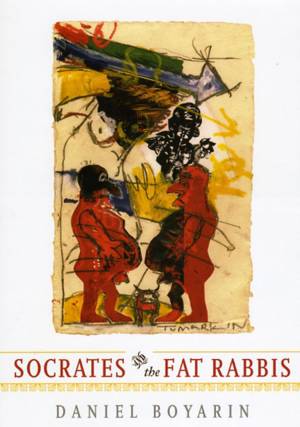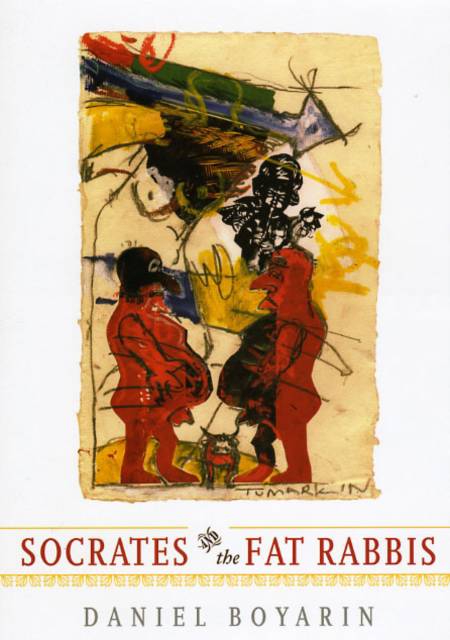
- Afhalen na 1 uur in een winkel met voorraad
- Gratis thuislevering in België vanaf € 30
- Ruim aanbod met 7 miljoen producten
- Afhalen na 1 uur in een winkel met voorraad
- Gratis thuislevering in België vanaf € 30
- Ruim aanbod met 7 miljoen producten
Zoeken
Omschrijving
What kind of literature is the Talmud? To answer this question, Daniel Boyarin looks to an unlikely source: the dialogues of Plato. In these ancient texts he finds similarities, both in their combination of various genres and topics and in their dialogic structure. But Boyarin goes beyond these structural similarities, arguing also for a cultural relationship. In Socrates and the Fat Rabbis, Boyarin suggests that both the Platonic and the talmudic dialogues are not dialogic at all. Using Michael Bakhtin's notion of represented dialogue and real dialogism, Boyarin demonstrates, through multiple close readings, that the give-and-take in these texts is actually much closer to a monologue in spirit. At the same time, he shows that there is a dialogism in both texts on a deeper structural level between a voice of philosophical or religious dead seriousness and a voice from within that mocks that very high solemnity at the same time. Boyarin ultimately singles out Menippean satire as the most important genre through which to understand both the Talmud and Plato, emphasizing their seriocomic peculiarity. An innovative advancement in rabbinic studies, as well as a bold and controversial new way of reading Plato, Socrates and the Fat Rabbis makes a major contribution to scholarship on thought and culture of the ancient Mediterranean.
Specificaties
Betrokkenen
- Auteur(s):
- Uitgeverij:
Inhoud
- Aantal bladzijden:
- 408
- Taal:
- Engels
Eigenschappen
- Productcode (EAN):
- 9780226069173
- Verschijningsdatum:
- 15/06/2012
- Uitvoering:
- Paperback
- Formaat:
- Trade paperback (VS)
- Afmetingen:
- 152 mm x 229 mm
- Gewicht:
- 544 g

Alleen bij Standaard Boekhandel
+ 115 punten op je klantenkaart van Standaard Boekhandel
Beoordelingen
We publiceren alleen reviews die voldoen aan de voorwaarden voor reviews. Bekijk onze voorwaarden voor reviews.








